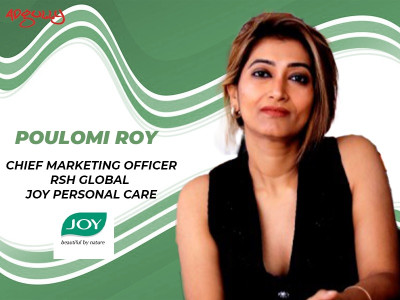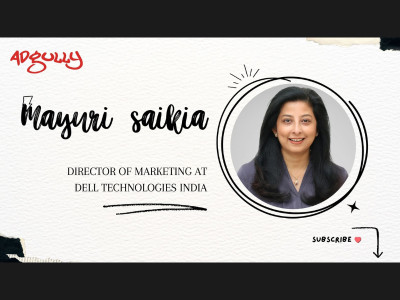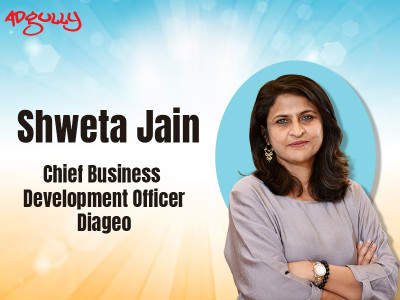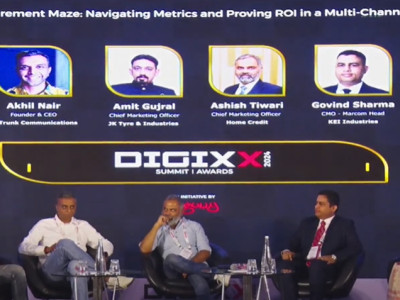Vice Media shares behind-the-scenes story of the making of 'Water Mafia'
Vice Media, a prominent digital media and broadcasting company, recently joined forces with Docubay for its latest documentary series, titled ‘Water Mafia’. The series sheds light on the illegal trade of water prevalent across various Indian cities, serving as an exposé on the black market for water.
In conversation with Adgully, Anil Chaudhary, COO, and Nidhi Girish Salian, Creative Director, at Vice Media India, and Naman Govil, director of ‘Water Mafia’, provide insights into the series. The team also highlighted some of their notable projects from the previous year, discussed the content lineup for 2024, and delved into other relevant topics.
Could you shed some light on the making of ‘Water Mafia’?
Naman Govil: When we were researching this story, we realized that this problem is primarily prevalent in larger cities like Delhi and Bombay. Consequently, we determined that our documentary should focus on these cities to explore various aspects of the water mafia—such as their modus operandi, organizational structure, and the economic dynamics involved. We sought to understand the scale of their operations and, ultimately, the impact on the people who fall victim to their activities. Lastly, we aimed to connect these issues to the long-term consequences of water scarcity, examining the potential future of a world where water is depleted and the water mafia continues to operate.
Nidhi Girish Salian: It was important for us to understand the scale of how this operates. While it is prevalent in major cities, we also explored the impact on tier two and tier three cities within the document. This is because water mismanagement affects everyone. Although the disparity is evident, with the enormous water requirements in cities, it's crucial to recognize that water scarcity has widespread consequences.
As we delved into the project, our initial ideas about the water mafia evolved. We questioned who exactly it affects. Despite living in a city like Bombay where running water is available, the reality is that many still need to rely on water deliveries, contingent on their ability to afford it. Almost everyone in the city, in some capacity, engages in these water transactions. It's ultimately a matter of affordability.
In contemplating the future, we considered the potential scenario where water runs out. No matter how much money one may have, without water, survival becomes a significant challenge.
Could you tell us about some of your notable projects from the year 2023, as well as your content line-up for 2024?
Anil Chaudhary: We had seen two shows releasing primarily on Amazon Prime video. The first one was “Cinema Marte Dum Tak” which was awarded as the best non-fiction original of 2023 by Filmfare and the other one was “Rainbow Rishte” around LGBTQI community. For 2024 other than Water Mafia we are doing another series with DocuBay which is about monogamy.
Nidhi Girish Salian: It is titled "Going Poly: love beyond monogamy," a feature-length documentary exploring the concept of polyamorous relationships within the Indian context. This phenomenon extends beyond cisgender heterosexual relationships, and the documentary aims to delve into how these relationships function. It seeks to elucidate the concept through the perspectives of individuals engaged in such relationships, ensuring it's not just an academic or outsider's viewpoint.
The documentary features various polycules, throuples, and sets of people, not confined to Bombay but representing diverse parts of the country. It goes beyond expectations, including individuals across different age brackets and the gender and sexual identity spectrum. The stories presented aim to showcase the intricacies of polyamorous relationships for an audience that might not fully comprehend the dynamics of falling in love with more than one person.
From a consumer perspective, what trends have you observed in Indian documentaries (non-fictional series)?
Nidhi Girish Salian: In the marketplace, one of the most accessible and successful genres is true crime. It appears to be a format that platforms are enthusiastic about, given its tried-and-tested success globally and its effectiveness across all languages.
Anil Chaudhary: We, as Vice Studio, started almost three to four years ago, right when documentaries were perceived as a low-budget endeavor. However, during that period, we undertook the production of "Indian Predator" for Netflix, which, at the time, was considered the most well-produced documentary in terms of budget allocation. Since then, we've played a pivotal role in shaping the market, leading to a scenario where every platform now considers documentaries a central part of their content programming. I believe this trend will continue to grow, and Vice Studios has been at the forefront, consistently pushing the envelope in terms of quality and innovation.
How OTT as a platform gives Indian documentaries (non-fictional) content greater opportunities to reach wider audiences?
Anil Chaudhary: Not just Netflix and Amazon Prime, we also collaborate regularly with Discovery, one of our key partners. With OTT platforms actively seeking viewership, we've observed a growing interest in nonfiction shows. These shows can be detailed or presented in a dramatized version, allowing viewers to witness events through their own eyes. For instance, in a documentary like "Water Mafia," a person shares insights into an issue, providing a firsthand account. Even on vice.com, our own platform, we've noticed an increasing attraction to this style of storytelling. Therefore, it's evident that all OTT platforms will increasingly gravitate towards this genre as this form of storytelling gains more traction.


















Share
Facebook
YouTube
Tweet
Twitter
LinkedIn